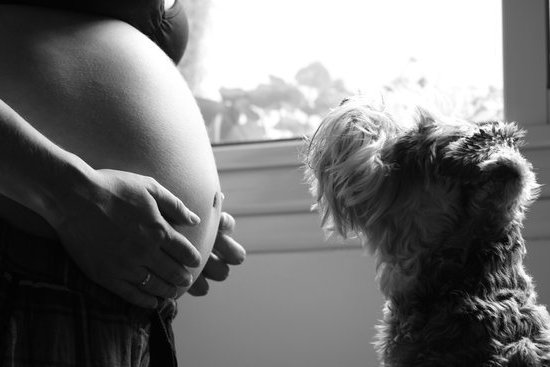Pregnancy is a miraculous journey that many women experience in their lifetime. One of the most exciting moments for a woman is discovering the first sign of pregnancy, signaling the beginning of a new chapter in her life. What is the sign of pregnancy that can indicate the start of this incredible journey? Understanding these early symptoms is crucial for expecting mothers to ensure a healthy pregnancy and prepare for the exciting changes ahead.
As a woman’s body goes through remarkable transformations during pregnancy, it often manifests various signs and symptoms. From missed periods to fatigue, these early indicators can be different for each woman. Physical changes such as tender breasts, nausea, and frequent urination are common signs that can signal the presence of a growing life within. These physical symptoms may vary in intensity and duration from woman to woman.
Apart from physical changes, emotional symptoms like mood swings and increased sensitivity are also prevalent during early pregnancy. Hormonal fluctuations play a significant role in causing these emotional roller coasters for expecting mothers. Additionally, unique signs such as food aversions, sensitivity to smells, and cravings can provide valuable insights into potential pregnancy. Recognizing and understanding these signs can help women navigate their pregnancy journey with greater awareness and care.
Early Signs of Pregnancy
The early signs of pregnancy can vary from woman to woman, but there are some common symptoms that many experience during the initial stages. One of the most well-known indicators is a missed period. When a woman misses her expected menstrual cycle, it may be a sign of pregnancy. However, it’s essential to remember that other factors such as stress or hormonal imbalances can also cause a late period.
Aside from a missed period, another early sign of pregnancy is fatigue. Many women feel unusually tired in the early weeks of pregnancy due to hormonal changes and increased energy expenditure in the body as it prepares for the growth and development of the fetus. This fatigue can be overwhelming for some women, leading them to need more rest than usual.
Furthermore, some women may experience morning sickness, which includes symptoms such as nausea and vomiting. Although commonly referred to as “morning” sickness, these symptoms can actually occur at any time of day.
The exact cause of morning sickness is not entirely understood, but it is believed to be related to hormonal fluctuations in the body during pregnancy. If you are experiencing persistent nausea and vomiting, it may be a sign to consider taking a pregnancy test to confirm whether or not you are pregnant.
Physical Changes
During pregnancy, a woman’s body goes through various physical changes that can indicate the presence of a developing fetus. It is essential for women to be aware of these changes to recognize the early signs of pregnancy and seek appropriate medical care. Here are some common physical symptoms that could signal pregnancy:
- Tender Breasts: One of the earliest signs of pregnancy is tenderness or soreness in the breasts. This can be attributed to hormonal changes as the body prepares for lactation. The breasts may feel swollen, heavy, or sensitive to touch.
- Nausea: Known as morning sickness, nausea is another prevalent early sign of pregnancy. It can occur at any time of the day and may be triggered by certain foods or smells. While not all pregnant women experience nausea, it is a common symptom in the first trimester.
- Frequent Urination: Pregnant women often find themselves needing to urinate more frequently than usual, especially during the early stages of pregnancy. This increased frequency is due to hormonal changes and pressure on the bladder from the expanding uterus.
These physical changes are usually experienced within the first few weeks of pregnancy and can vary in intensity from woman to woman. It is important for women who suspect they may be pregnant to consult with a healthcare provider for confirmation and guidance on prenatal care. Understanding and recognizing these physical symptoms can help expectant mothers take necessary steps to ensure a healthy pregnancy and delivery.
In addition to tender breasts, nausea, and frequent urination, there are other physical signs that may indicate pregnancy. These include fatigue, bloating, constipation, and heightened sense of smell. It is vital for women who are trying to conceive or have had unprotected intercourse to be aware of these potential symptoms and monitor their bodies closely for any changes that could point towards pregnancy.
Knowing what is the sign of pregnancy can empower women to take control of their reproductive health and make informed decisions about their care. By being attentive to both subtle and obvious physical changes, women can better prepare themselves for the journey ahead and seek timely medical attention when necessary. Early detection and management play a crucial role in ensuring a smooth and healthy pregnancy for both mother and baby alike.
Emotional Symptoms
During pregnancy, women may experience a rollercoaster of emotions due to the fluctuating hormones in their bodies. Mood swings are a common emotional symptom that many pregnant women face, ranging from feeling happy and excited one moment to feeling irritable or sad the next. These sudden changes in mood can be challenging to navigate, but it is essential for expecting mothers to recognize that they are a normal part of the pregnancy journey.
Increased sensitivity is another emotional symptom that pregnant women may experience. This heightened sensitivity can involve being more emotionally reactive to situations, having a shorter fuse when dealing with stress, or even crying more easily than usual. It is crucial for both the pregnant woman and her partner to understand that these emotional changes are temporary and often subside after childbirth.
Managing Emotional Symptoms During Pregnancy
To cope with mood swings and increased sensitivity during pregnancy, it is important for women to prioritize self-care and emotional well-being. Engaging in calming activities such as meditation, gentle exercise, or spending time in nature can help reduce stress levels and promote relaxation. Additionally, open communication with loved ones about feelings and emotions can provide much-needed support during this emotionally volatile period.
Seeking Support
If emotional symptoms become overwhelming or interfere with daily life, seeking professional support from a therapist or counselor can be beneficial. Talking to a mental health professional can provide pregnant women with coping strategies, tools for managing emotions, and a safe space to express their concerns. Remember that taking care of your mental health is just as important as taking care of your physical health during pregnancy.
Unique Pregnancy Signs
During pregnancy, women may experience a variety of unique signs that can indicate the presence of a growing life within them. One common sign of pregnancy is food aversions, where certain smells or tastes that were once enjoyable now become repulsive to the expectant mother.
This can be attributed to hormonal changes in the body, causing a shift in taste preferences and sensitivity to specific odors. It’s important for women to listen to their bodies during this time and honor any aversions they may have.
In addition to food aversions, many pregnant women also report heightened sensitivity to smells during the early stages of pregnancy. Perfumes, cleaning products, and even certain foods can trigger nausea or discomfort due to increased olfactory perception.
This heightened sense of smell is believed to be linked to hormonal changes as well, and it serves as another unique sign that a woman may be pregnant. Understanding and acknowledging these sensitivities can help expectant mothers navigate their daily lives with more ease.
Cravings are another common and sometimes strange symptom of pregnancy. Women may find themselves suddenly yearning for foods they never enjoyed before or developing an insatiable desire for a particular type of cuisine. While cravings can vary widely from person to person, they are often linked to hormonal fluctuations and nutritional needs of the growing baby.
Embracing these cravings in moderation can help alleviate discomfort and provide essential nutrients for both the mother and the developing fetus. Ultimately, recognizing these unique signs of pregnancy can empower women to take better care of themselves and their unborn child throughout this transformative journey.
External Signs
During pregnancy, a woman’s body goes through numerous changes, both internal and external. One of the external signs that can indicate pregnancy is the changes in skin, hair, and nails. These changes are often attributed to the hormonal shifts happening within the body during this time.
Many women experience changes in their skin during pregnancy. Some may notice an increase in oil production leading to acne breakouts, while others may experience a pregnancy glow due to heightened blood circulation. Skin pigmentation may also change, with some women developing a dark line down the abdomen known as linea nigra. Additionally, stretch marks may appear on the breasts, abdomen, hips, or thighs as the body expands to accommodate the growing baby.
Hair and nail changes are also common during pregnancy. Some women report thicker, fuller hair due to decreased hair shedding during pregnancy. However, others may experience hair thinning or dryness. Nails may become stronger and grow faster for some women, while others may notice brittleness or changes in texture. These external signs can vary from woman to woman and may not be present in every pregnancy.
It is important for women to be aware of these external signs of pregnancy as they can provide valuable insights into their overall health during this crucial time. While these changes are typically harmless and temporary, it is always recommended to consult with a healthcare provider if there are any concerns or unusual symptoms present. Recognizing and understanding these external signs can help women better care for themselves and their growing baby throughout the course of their pregnancy journey.
When to Take a Pregnancy Test
When it comes to confirming a suspected pregnancy, taking a pregnancy test is one of the most common methods women rely on. But what exactly is the sign of pregnancy that prompts the need for a test?
Typically, the missed period is considered one of the earliest signs that lead many women to consider taking a pregnancy test. This classic symptom often sets off a chain reaction of curiosity and anticipation in women who are trying to conceive or suspect they may be pregnant.
In addition to a missed period, other physical signs can also indicate a possible pregnancy. Nausea, tender breasts, and frequent urination are commonly reported symptoms in early pregnancy. These physical changes can often be attributed to hormonal shifts and increased blood flow as the body prepares for potential implantation and development of the fetus. Many women report feeling more fatigued than usual during this time as well, even if they haven’t made any significant changes to their daily routine.
Recognizing emotional symptoms associated with early pregnancy can also play a crucial role in understanding when to take a pregnancy test. Mood swings, increased sensitivity, and feelings of irritability are commonly experienced by pregnant women due to changing hormone levels. It’s important for individuals to pay attention not only to physical changes but also emotional fluctuations as potential indicators of pregnancy.
| Signs | Description |
|---|---|
| Missed Period | One of the earliest signs leading women to consider taking a pregnancy test. |
| Nausea | A common symptom experienced in early pregnancy due to hormonal shifts. |
| Mood Swings | Emotional fluctuations that can be indicative of hormonal changes associated with pregnancy. |
Conclusion
Recognizing the early signs of pregnancy is crucial for women’s health and wellbeing. It not only allows women to start taking the necessary steps for a healthy pregnancy but also helps in preparing them physically and emotionally for the journey ahead.
From missed periods to fatigue, tender breasts to frequent urination, these symptoms serve as indicators that a woman may be pregnant. Emotional symptoms like mood swings and increased sensitivity can also signal the beginning of this life-changing phase.
Moreover, unique pregnancy signs such as food aversions, sensitivity to smells, and cravings are often overlooked but play a significant role in understanding one’s body during pregnancy. These signs can vary from woman to woman, making it essential to listen closely to what your body is telling you. External changes like alterations in skin, hair, and nails are also common indicators of pregnancy that should not be ignored.
Knowing when to take a pregnancy test is equally important for accuracy and timing. While some tests claim to detect pregnancy even before a missed period, waiting until after a missed period can provide more reliable results.
Overall, being mindful of these early signs of pregnancy empowers women to make informed decisions about their health and seek appropriate medical care when needed. So pay attention to what your body is telling you and consult with healthcare professionals if you suspect you may be pregnant.
Frequently Asked Questions
What Are the 10 Signs of Pregnancy?
Some common signs of pregnancy include missed periods, nausea/vomiting (morning sickness), breast tenderness/swelling, fatigue, frequent urination, food aversions/cravings, mood swings, constipation, heightened sense of smell, and bloating.
What Symptoms Do You Have at 1 Week Pregnant?
At 1 week pregnant, you may not experience noticeable symptoms yet as this is the time when fertilization typically occurs. Some women may have mild cramping or spotting due to implantation of the fertilized egg in the uterus lining.
How Soon Can You Tell if You Are Pregnant?
The earliest most women can detect pregnancy is around 7-10 days after ovulation or conception by taking a home pregnancy test. Blood tests done by doctors may detect pregnancy hormones even earlier, usually within 6-8 days after ovulation.
Symptoms of early pregnancy like morning sickness or breast tenderness may also be indicators but are not definitive proof of being pregnant.

Welcome to my fertility blog. This is a space where I will be sharing my experiences as I navigate through the world of fertility treatments, as well as provide information and resources about fertility and pregnancy.





